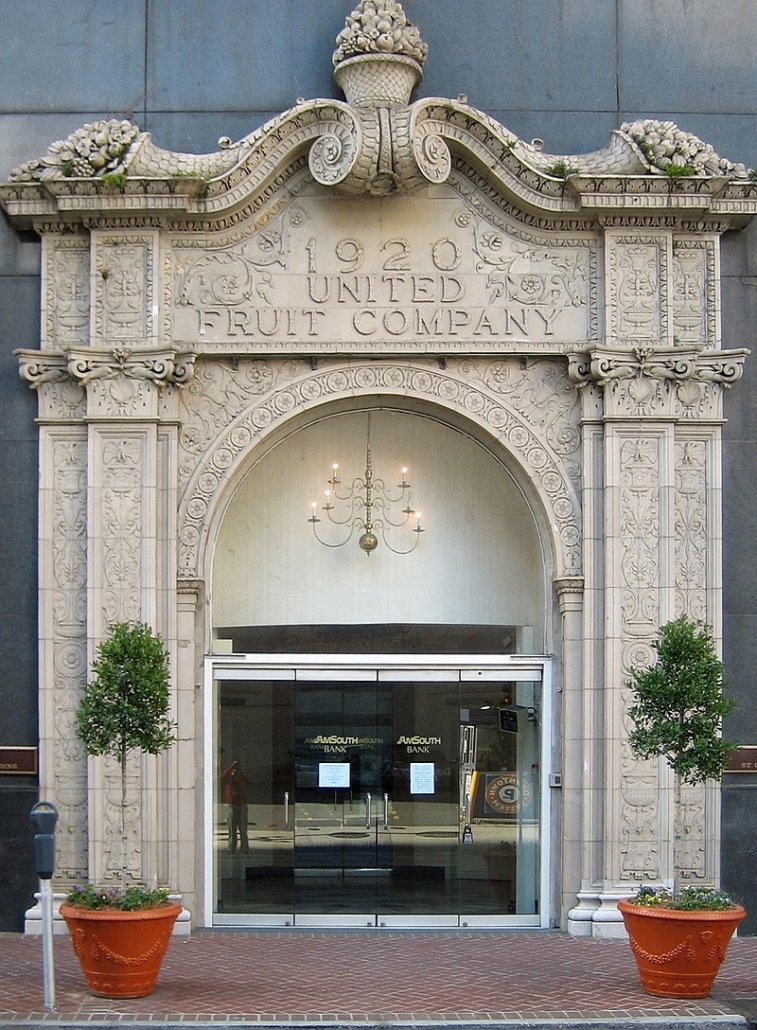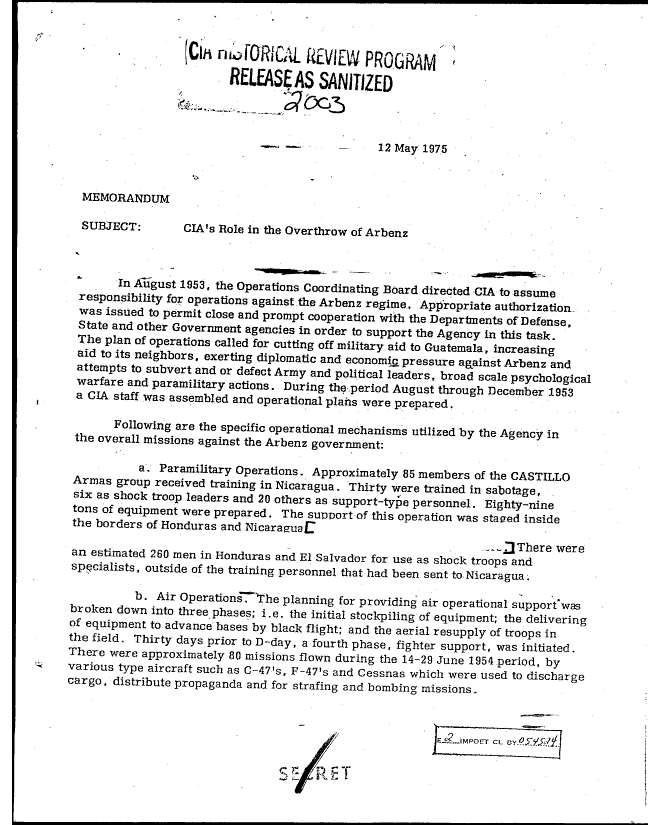Most tourists that visit Guatemala each year, few know about the Mass Killing of Mayans.
The 1954 overthrow of Guatemalan President Jacobo Arbenz, codenamed Operation PBSUCCESS, was indeed conducted by the Central Intelligence Agency (CIA).
This event remains a significant and controversial chapter in US foreign policy history due to the various factors involved and its lasting consequences.
Here’s a summary of the key points:
- Operation PBSUCCESS: The CIA orchestrated a covert operation to overthrow Arbenz, who had implemented land reforms perceived as a threat to US interests in Guatemala, particularly those of the United Fruit Company (UFCO).
- Motivations: The US government’s decision to intervene stemmed from a combination of factors, including:
- Cold War anxieties: The fear of communist expansion in Latin America during the Cold War heavily influenced the perception of Arbenz’s reforms as a communist threat.
- UFCO lobbying: The UFCO, fearing the potential loss of land and profits due to Arbenz’s reforms, lobbied heavily in Washington, portraying him as a communist and exaggerating the threat.
- Domestic political considerations: US policymakers also harbored concerns about the potential domino effect if Guatemala fell under communist influence.
- Methods: The CIA employed various tactics to achieve its goals:
- Supporting rebel forces: They provided financial and military assistance to a rebel group led by Carlos Castillo Armas, a Guatemalan military officer opposed to Arbenz.
- Psychological warfare: The CIA launched propaganda campaigns to undermine Arbenz’s government and sow discord within the Guatemalan military.
- Covert operations: They engaged in various clandestine activities to weaken Arbenz’s government and create an environment conducive to the coup’s success.
The consequences of the 1954 coup were far-reaching and continue to be debated:
- End of democratic government: The overthrow of Arbenz marked the end of a brief period of democratic rule in Guatemala and ushered in decades of repressive military regimes.
- Civil war: The coup sparked a brutal civil war that lasted for decades, resulting in widespread human rights abuses and the deaths of thousands of Guatemalans.
- Legacy of US intervention: The event remains a contentious issue, raising questions about the ethics and effectiveness of US intervention in foreign countries and its long-term consequences.
Understanding the complexities of the 1954 Guatemalan coup is crucial for comprehending the historical context of US foreign policy in Latin America and its lasting impact on the region.
In 1994 Guatemala‘s Commission for Historical Clarification – La Comisión para el Esclarecimiento Histórico (CEH) – was created as a response to the thousands of atrocities and human rights violations committed during the decades long civil war that began in 1962 and ended in the late 1990s with United Nations-facilitated peace accords.
The commission operated under a two-year mandate, from 1997 to 1999, and employed three commissioners: one Guatemalan man, one male non-national, and one Mayan woman. The mandate of the commission was not to judge but to clarify the past with “objectivity, equity and impartiality.”
Among other things, the commission revealed that over 200,000 people were killed or disappeared during the conflict and attributed 93% of the violations to state forces and related paramilitary groups.
The commission noted that during the conflict the distinction between combatant and non-combatant was not respected and as a result many children, priests, indigenous leaders, and innocent women and men were killed. The CEH aimed to instill national harmony, promote peace, foster a culture of mutual respect regarding human rights, and preserve the memory of the conflict’s victims.
The CEH report documented numerous acts perpetrated by the Guatemalan state and its associated paramilitary forces that met the legal definition of genocide as outlined in the 1948 Convention on the Prevention and Punishment of the Crime of Genocide. These acts included:
- Mass Killing of Mayans: The report documented numerous massacres and targeted killings of Maya individuals and communities.
- Forced displacement: The Guatemalan military forcibly displaced large numbers of Maya people from their ancestral lands, disrupting their traditional way of life and livelihoods.
- Destruction of cultural heritage: The report documented the deliberate destruction of Maya cultural sites and artifacts, aiming to dismantle their cultural identity.
- Sexual violence: The report documented widespread use of sexual violence against Maya women as a form of control and humiliation.
The CEH report acknowledged the complexities of the conflict but concluded that these acts were systematic, widespread, and targeted against the Maya population with the intent to destroy them in part.
This finding has significant historical and legal implications, highlighting the severity of the human rights abuses committed during the civil war and paving the way for efforts towards accountability, reconciliation, and justice for the victims.
It’s important to remember that the genocide finding remains a contested issue, with some arguing that the label doesn’t fully capture the nuances of the conflict.
However, the CEH report’s findings continue to serve as a crucial resource for understanding the magnitude of suffering endured by the Maya population and the need for ongoing efforts to address the legacy of violence and injustice in Guatemala.
On January 17, 2007, Ríos Montt announced that he would run for a seat in Congress in the election to be held later in the year. As a member of Congress, he would again be immune from prosecution unless a court suspended him from office.
He won his seat in the September election and led the FRG’s 15-member congressional delegation in the new legislature.
Ríos Montt’s immunity ended on January 14, 2012, when his term in office expired. On January 26, 2012, he appeared in court in Guatemala City and was formally indicted by Attorney General Claudia Paz y Paz for genocide and crimes against humanity, along with three other former generals.
During the court hearing, he declined to make a statement. The court released him on bail but placed him under house arrest pending trial.
On March 1, 2012, a judge ruled the charges against Ríos Montt were not covered by the 1996 National Reconciliation Law, which had granted amnesty for political and common crimes committed in the course of the Guatemalan Civil War.
On 28 January 2013, Judge Miguel Angel Galves opened a pre-trial hearing against Ríos Montt and retired General José Mauricio Rodríguez Sánchez for the Mass Killing of Mayans genocide and crimes against humanity, in particular the Mass Killing of 1,771 Mayan Ixil Indians, including children.




 Ethical Fashion Guatemala
Ethical Fashion Guatemala Ethical Fashion Guatemala
Ethical Fashion Guatemala